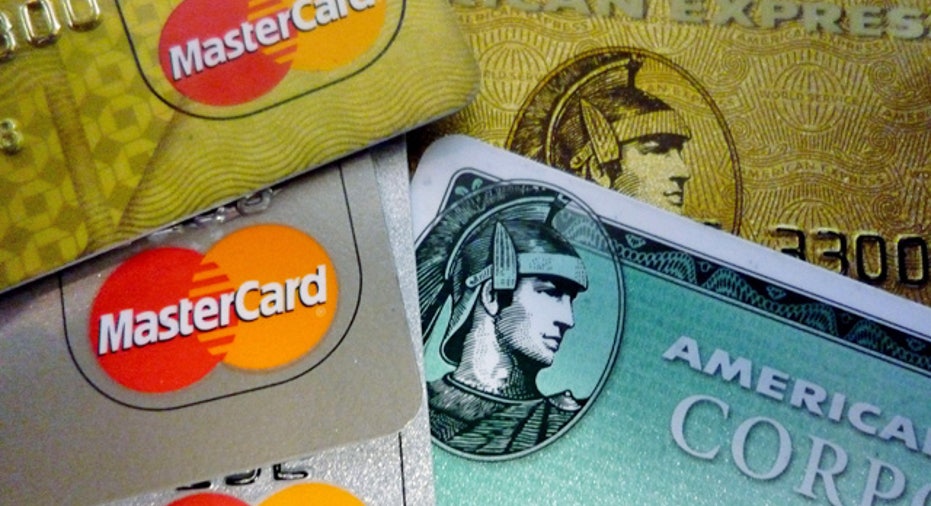Options, Strategies for Negotiating a Lower Credit Card Rate

Dear New Frugal You,
I was a bit surprised to hear my credit card company representative tell me that because of the Credit CARD Act of 2009, she was not able to negotiate an interest rate reduction on my credit card. What are your thoughts on this? Is this accurate? Are consumers no longer able to negotiate interest rates with credit companies? What alternative strategies can you offer?
-Brian
Dear Brian,
Good question! The Credit Card Accountability, Responsibility, and Disclosure (CARD) Act of 2009 was intended to curtail unfair rate hikes and hidden fees. Before the act it was common for banks to raise your interest rate on existing balances if you were late on any of your payments to any creditor.
According to the White House announcement, the law "bans rate increases on existing balances due to 'any time, any reason' or 'universal default' and severely restricts retroactive rate increases due to late payment." These penalty rates were often as high as 29% and banks were generally unwilling to negotiate a lower rate with the cardholder. At the time that the CARD Act was passed, the White House stated that consumers paid $15 billion in penalty fees annually and 44% of families had a balance on at least one credit card.
To answer your question directly, the representative you spoke to was misinformed. As originally proposed, the law would have made consumers wait 45 days before any rate change, up or down. When lawmakers realized that language they intended to slow rate increases was being used to deny consumers rate cuts, they instructed regulators to close the loophole and allow instant credit card rate reductions. As of February 2010, that's been the law of the land. Perhaps the representative you spoke to did not get the word that the rules had changed.
Although the act restricted banks from raising rates on existing card balances, it did not prevent banks from raising rates on new charges on the account. Even accounts advertised as having fixed rates can rise if the account has been in existence more than a year and cardholders have received that 45 days' notice. I asked Thomas J. Fox, community outreach director of Cambridge Credit Counseling, what he thought of the response you received. "This sounds more like an internal policy rather than a provision of the CARD Act. The act does detail instances where interest rates are eligible for reduction, but those are primarily tied to penalty increases and fluctuations in the market." Notice that the bank is not required to negotiate a lower rate on your credit card balance. As long as they're within the law they can refuse to lower rates. So what can you do? Begin by trying again for a rate reduction. Fox recalls, "I worked in a bank early in my career, and I was given two, two-inch binders of rules and regulations on day one. They grew to three inches before I moved on. Call your bank back and try talking to another representative, or better yet, a supervisor. Supervisors have more discretion, so they are the best folks to talk with if you're not making headway with your representative." When you're going to ask for a lower credit card rate, have a plan and choose your words carefully. A lack of success with your current bank still leaves a few options. If you have another account with a lower rate, use it for any new charges. Your prior balance on the problem account will stay at the old rate. If you don't have an account with a lower rate, shop for one. You'll find a tool to help you find the best low-interest rate deal at CreditCards.com. Also, see if an offer for a balance transfer might provide a lower rate. Before jumping at a balance transfer offer, though, run the numbers on a balance transfer calculator to make sure the deal makes sense after you consider the fees and the duration of the teaser rate. Admittedly, both of these options are much easier if you have a good credit score. Anything above 700 should work, but even if you're in the mid- to lower-600s it's worth trying. One thing you can do on your own is stop using the old card, even if that means going to a debit card or using cash. Any purchases you make with it will just add to the balance that's being charged the higher, unacceptable rate. Your final option is to pay off the balance as soon as you can. If you can't find a way to raise cash, it might be worthwhile looking for part-time employment that could be applied to the balance. One final thought. Banks are much quicker to raise your rates on new charges than before the CARD Act. It's part of their attempt to make up for other lost revenue. Naturally, as consumers, we don't like that. But there is one benefit for us. Typically banks raise their rates because they're concerned that we won't be able to make our future payments. So a rate increase can be an early warning sign that our financial situation is getting worse. That might not be true in your case. But, it probably is wise to take a look at your finances and see if any changes are in order.
See related: Credit card etiquette: How to politely win when credit card disputes arise, 6 credit card terms you can negotiate and change, 4 tips for negotiating for better credit card terms
More from CreditCards.com:



















